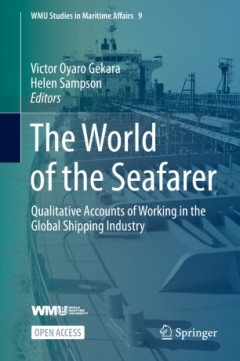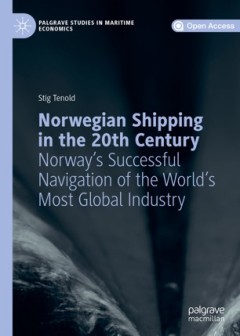Filter by

The environmental rule of law for oceans: designing legal solutions
Our oceans need a strong and effective environmental rule of law to protect them against increased pressures and demands, including climate change, pollution, fisheries, shipping and more. The environmental rule of law for oceans requires the existence of a set of rules and policies at multiple governance levels that appropriately regulate human activities at sea and ensure that pressures on th…
- Edition
- -
- ISBN/ISSN
- 9781009253741
- Collation
- xxxiii, 380 pages; illustration
- Series Title
- -
- Call Number
- 341.4 POZ t

Navigating neutrality : early american governance in the turbulent atlantic
History of the Americas;Naval forces and warfare;General and world history;Central / national / federal government
- Edition
- -
- ISBN/ISSN
- 9780813946450
- Collation
- 224p. : ill
- Series Title
- -
- Call Number
- 327.42073 SAN n

Sailing from polis to empire : ships in the Eastern Mediterranean during Hell…
This book represents a significant contribution to the fields of Hellenistic archaeology, Hellenistic economy, naval architecture and shipping in the eastern Mediterranean. It asks (and answers) questions that are often simply assumed and not systematically investigated. — Dr. Conor Trainor, University of Warwick What can the architecture of ancient ships tell us about their capacity to c…
- Edition
- -
- ISBN/ISSN
- 9781783746958
- Collation
- xvii, 127 p. ; ill.
- Series Title
- -
- Call Number
- 623.821 NAN s

The world of the seafarer : qualitative accounts of working in the global shi…
This open access book constitutes an ethnographic mosaic which depicts the contextual complexities of the life and work of seafarers who are employed in the international merchant cargo fleet. The collection is based upon the observations and interviews of researchers in multiple disciplines. It is woven together to offer a richly detailed insight into the ways in which a complex global industr…
- Edition
- -
- ISBN/ISSN
- 9783030498252
- Collation
- viii, 198p. : ill.
- Series Title
- -
- Call Number
- 387.5 WOR w

Snow in the tropics: a history of the independent reefer operators
Snow in the Tropics offers the first comprehensive history of the independent reefer operators, companies that are dedicated to transport refrigerated products by ship, from the early 20th century to the present. Readership: All interested in maritime history, particularly those with an interest in the modern history of the shipping industry.
- Edition
- -
- ISBN/ISSN
- 9789004393868
- Collation
- xiv, 278p.: ill.
- Series Title
- -
- Call Number
- 387.554 LEN s

Shipping and globalization in the post-war era : contexts, companies, connect…
This book belongs to the Maritime Business and Economic History strand of the Palgrave Studies in Maritime Economics book series. This volume highlights the contribution of the shipping industry to the transformations in business and society of the postwar era. Shipping was both an example and an engine of globalization and structural change. In turn, the industry experienced and pioneered, …
- Edition
- -
- ISBN/ISSN
- 9783030260026
- Collation
- xi, 290p. : ill.
- Series Title
- -
- Call Number
- 387.5 SHI s

Norwegian shipping in the 20th century : Norway's successful navigation of th…
This open access book discusses how Norwegian shipping companies played a crucial role in global shipping markets in the 20th century, at times transporting more than ten per cent of world seaborne trade. Chapters explore how Norway managed to remain competitive, despite being a high labour-cost country in an industry with global competition. Among the features that are emphasised are market de…
- Edition
- -
- ISBN/ISSN
- 9783319956398
- Collation
- xiii, 327p. : ill.
- Series Title
- -
- Call Number
- 387.5094810904 TEN n
 Computer Science, Information & General Works
Computer Science, Information & General Works  Philosophy & Psychology
Philosophy & Psychology  Religion
Religion  Social Sciences
Social Sciences  Language
Language  Pure Science
Pure Science  Applied Sciences
Applied Sciences  Art & Recreation
Art & Recreation  Literature
Literature  History & Geography
History & Geography